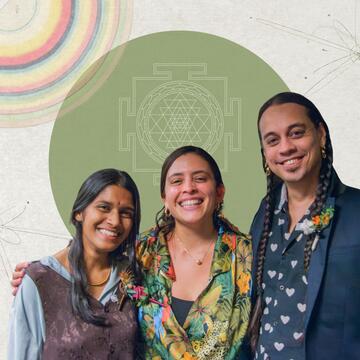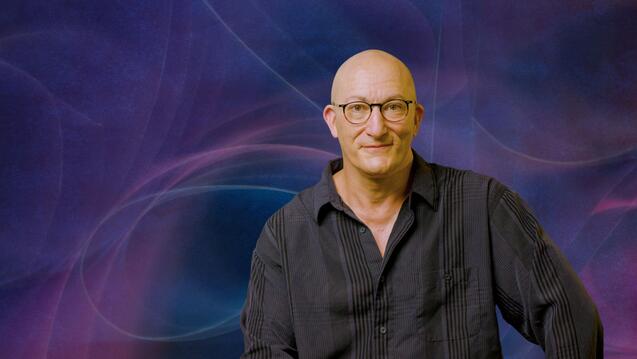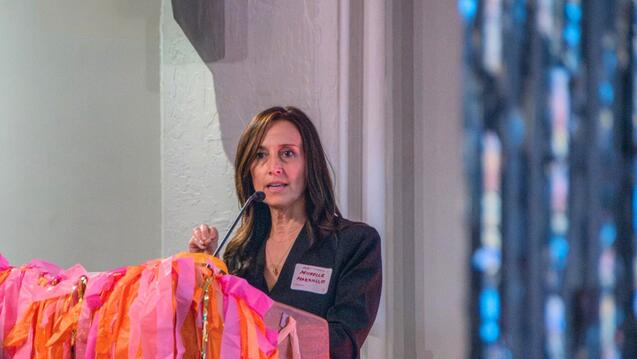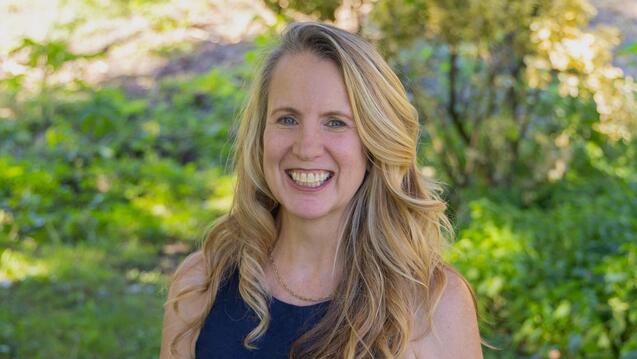Explore CIIS’ groundbreaking Bachelor’s program and the bold vision behind its creation.
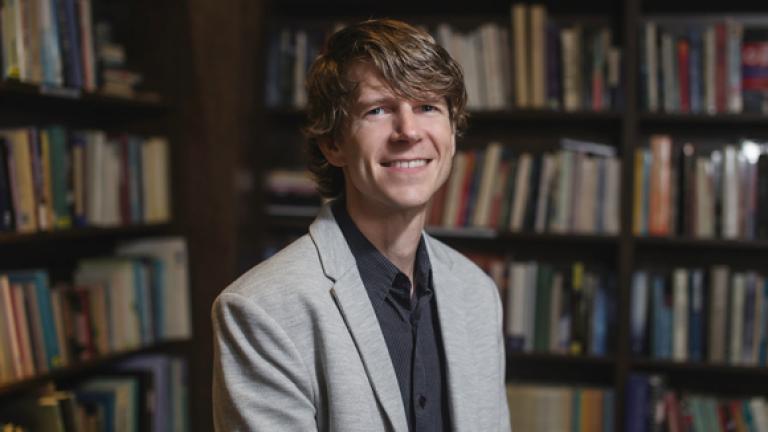
Meet Dr. Aaron Norton
A wide-ranging discussion with the Human Sexuality Ph.D. program's new faculty member
The Human Sexuality doctoral program at CIIS welcomes new faculty member Aaron Norton, Ph.D., who talks about his reasons for coming to CIIS, his approach to teaching and activism, the field of sexualities studies, and the books on his nightstand.
How do you see CIIS as a university enriching your work and life here in the Bay Area?
I've already been quite impressed not only with the dedication of CIIS to rigorous academic standards for students, but also the way that CIIS enriches what happens in the classroom through numerous public events that demonstrate a commitment to integral education, different ways of knowing, and collaboration with the broader community. In addition, the CIIS Center for Psychedelic Therapies and Research intersects broadly with my own interests in the politics of knowledge production, which includes, among other topics, the ways that institutional and legal constraints can shape what is allowed to become "formal" or accepted wisdom and what isn't. CIIS is a place filled with courageous, caring, and dedicated people willing to push back on dominant knowledge and institutional paradigms that prevent other ways of thinking and being in a complex world. Supporting the study of psychedelics in the context of guided therapy is just one example of why CIIS is a great place to be.
Why did you decide to join the Human Sexuality Ph.D. program at CIIS?
I chose to join the program because of its integral approach to the study of sexuality. Throughout my undergraduate and graduate education, I became increasingly interested in pursuing questions that could not be answered within a single discipline, by one methodology, or without awareness of the limits of our own knowledge within a particular system of thought.
The Ph.D. program in Sexuality Studies and CIIS more generally spoke to me as a place where people can engage in conversations and pursue scholarly questions that cut across familiar disciplinary perspectives. Sexual/gender identities, practices, and desires, as with many other aspects of life, can't be fully engaged without reflecting on how we are situated within particular ways of thinking, being, and knowing, as well as how people challenge dominant norms as they negotiate their respective worlds. The Human Sexuality program at CIIS takes that as a fundamental starting point in seeing the significance of sexuality and gender not simply as important to understanding ourselves as individuals or part of our connection to others (important enough to be sure!), but also the ways that gender and sexuality are deeply interwoven with just about every domain of life—from science and medicine, to politics and the law, to art and performance, and to religion, philosophy, and economics. If sexuality studies were a perceptual disorder, it would be synesthesia. But it turns out that synesthesia isn't a disorder at all. It's a gift.
What courses will you be teaching?
Currently, I teach the Introduction to Human Sexuality Course for Ph.D. students in their first year of the program. In Spring 2019, I will teach Gender and Queer Theory and Methodology II, both courses for students in their second year.
Your work in the field of sexualities studies allows you to draw on multiple theories and methodologies, and you have really demonstrated this breadth of influence in your scholarship. Would you give some examples of where your teaching has benefitted from this field-based, versus discipline-based, approach?
As a teacher of sexuality and gender studies, I employ key themes and concepts from sociology, anthropology, and philosophy of science to encourage students to critically evaluate their own perspectives with respect to gender and sexuality. This means fostering students' ability to view knowledge as a culturally and historically contingent practice and therefore as empirically grounded, yet amenable to various levels of critique.
For example, based in part on my research into the politics of HIV-risk categorization and large-scale public health interventions, and in conversation with the boundary-breaking scholarship that the AIDS epidemic inspired and demanded, I developed a course that examined the intersections between biomedicine, sexuality, and the HIV/AIDS epidemic.
The course's primary objective was to respectfully challenge dominant scientific and cultural discourses that have accompanied the HIV epidemic. For example, students identified how knowledge classification regimes about HIV resulted in a multitude of "invisibilities," frequently recapitulating long entrenched racial and gender stereotypes and limiting what forms of knowledge and actions were possible at an institutional level.
Further, we examined how HIV-related knowledge production at the intersections of race, sexuality, class, and gender produced various forms of "respectability politics" among marginalized groups that, although understandable, unintentionally reproduced some of the pejorative narratives that limited the range of responses to combat HIV in the first place—a long-lasting effect of racialized and sexualized stereotypes.
Finally, the course tackled the role of grassroots activism in imagining nonauthoritarian/nonmoralizing approaches to sexual practice that were instrumental in inventing new risk minimization strategies outside of the purview of mainstream public health. The goal in all of this was not facile critique but rather to develop students' ability to consider conflicting views, while trying out ways of knowing from multiple vantage points. In taking such an approach to an object of analysis, students come to see the ways in which questions and their answers simultaneously reflect and produce the world around them.
The Human Sexuality program uses the scholar-practitioner model to foster scholarship that may be applied to address timely issues and enrich people's lives. Your career has spanned scholarly and applied work via your involvement with HIV/AIDS regulatory work in a clinic focused on LGBTQ people, people of color, and immigrants; and your work writing amicus briefs in support of federal marriage legislation. Can you explain why you believe such scholar-practitioner training is crucial?
For me, the ability to see from multiple perspectives—to think critically—is fundamental to engaging with others, whether directly in the role of a clinician, educator, or activist, or from a slightly greater distance, in the enactment of laws and policies whose impacts can potentially affect even greater numbers of people. Whether one is engaging with others whose values around sexuality and gender are fundamentally at odds with one's own, or whether we are seeking to enact laws and policies that make life a little bit easier for folks who have been marginalized because of their gender or sexuality, there are pitfalls at every step. Enacting change—the goal of any educator, clinician, activist, or policy-maker—requires passionate, compassionate, and rigorous engagement with notions of difference, and only by expanding how and what we are able to see can we hope to enact meaningful change that invites others to come along on the journey.
Sexuality studies at CIIS assumes an activist orientation if we consider activism to have at its heart the transformation of society, and in the process, how we understand ourselves and our relationships to one another.
Can you tell us what you are reading at the moment?
I'm currently toggling between three wonderful books:
- On the Move, by Oliver Sacks
- Pathways of Desire: The Sexual Migration of Mexican Gay Men, by Héctor Carrillo
- A Stroke of Love: Memories of Our Journey, by Hilda Norton
Related News
Explore how CIIS’ Human Sexuality degrees empower students to create social change through research, theory, and advocacy.
Dr. Elizabeth Allison on training leaders for ecological change.
